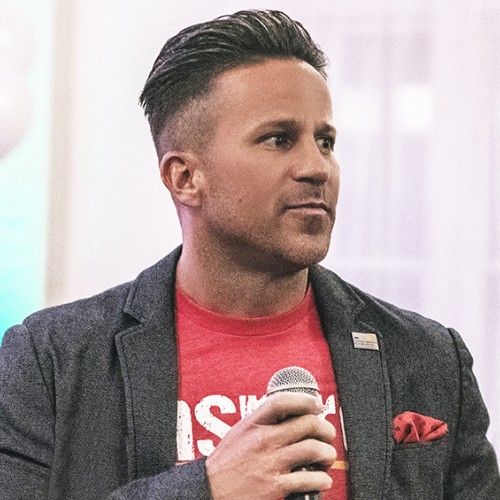Retaining employees is an important part of building a successful team. When managers and supervisors work to make their teams feel valued and motivated, employees are more likely to stay with a company that can contribute to the company’s overall growth and prosperity.
Every company has a mission statement and a running list of goals to work towards. Should employee retention be the next goal added to your list?
In this article, we discuss the importance of employee retention and why it is crucial to enforce overall comprehension of Work Orientation within your company.
What are the benefits of employee retention?
● Build a strong workforce
Steady employee retention allows managers and supervisors to invest in their team members and helps them develop into more productive employees. When employees stay with a company long-term, they often accept more responsibilities, seek professional development, and help the company grow.
● Increase productivity
Instead of spending time looking for and training new employees, managers and supervisors can focus on helping employees be more productive. A stable staff knows what needs to be done and how they can achieve it. They have a strong foundation for advancement based on institutional knowledge and developed skills.
● Improve employee morale
Employee retention strategies are designed to increase employee happiness and job satisfaction. When managers regularly implement these strategies, they help increase employee morale overall. Employees who feel happy at work are often more willing to work toward the company's mission and contribute to a positive work environment.
Although these are great benefits to retaining your employees, what is the key to achieving employee satisfaction and retention?
Work Orientation!
Why is it important to know your employees’ Work Orientation?
Injecting meaning into work is a new mission that companies are willingly taking on in order to attract, retain and motivate employees. Under these conditions, finding meaning in one’s work becomes an additional aim for the employee and the manager.
Everyone has their own way of deriving meaning from work. We call this your Work Orientation. According to research done by Ambition in Motion, it is evident that people generally fall into one of three major categories based on how they find meaning at work. The categories are as follows:
● Career Oriented – which means motivated by professional growth like getting promoted or learning new skills that support career advancement.
● Calling Oriented – which means motivated by the fulfillment from doing the work and making a positive impact on the world with their work.
● Job Oriented – which means motivated by gaining greater control over work/life balance and gaining material benefits to support their life outside of work.
When managing a Job Oriented employee, it is important to understand that they are more motivated by work/life balance and using their professional development to gain greater control and freedom over their life. Oftentimes, in a work setting, it is comforting to know that one’s company considers their workload and balance before pushing additional responsibilities onto them.
When making long-lasting connections with your Job Oriented employees, make sure they know that you and the company value their life outside of work, and the benefits from their work will resemble that.
When managing a Calling Oriented employee, know that they are motivated by changing the world through their work; making a difference in others’ lives. Essentially, their professional life and personal life missions are intertwined and it’s extremely beneficial for them to be understood and encouraged through their aspirations. Even when they’re at their peak of challenges and ongoing tasks, they find comfort in reinforcement.
When making long-lasting connections with your Calling Oriented employees, make sure that you have regular conversations with them about why their work is meaningful, and work to find ways that reinforce and build more meaningful work practices.
When managing a Career Oriented employee, remember that they are most motivated by learning new skills and gaining promotions within the company and their work. It helps them to know that they are working towards a clear path with promotions and opportunities.
When making long-lasting connections with your career-oriented employees, it is critical that you clearly communicate your goals with them and listen to their goals within the company in order to reach fulfillment for both of you within the company.
How can you determine your employees’ work orientation?
Click here to take this free, 5-minute assessment created by the Ambition in Motion team, to find out what your work orientation is, and how to better understand the different types of work orientations: Work Orientation Assessment | Ambition In Motion
What are quick tips for retaining employees with your new Work Orientation strategies?
It's important to choose employee retention strategies that make sense for your workplace. The secret to retaining employees starts with understanding each employee’s work orientation. When implementing your strategies, use these tips:
- Ask for employee feedback
Send out anonymous surveys to learn what your team members’ Work Orientation is as well as what their goals are within the company and within their personal lives. Ask them what changes they would like to see in the workplace. Have them also list any incentives that would help them feel more satisfied and valued and stay longer. By directly sourcing team members, you can customize employee retention strategies more effectively.
Looking for a more efficient way to evaluate performance reviews within your company? Ambition in Motion offers their software, AIM Insights, ensuring visibility over all ongoing activities: task performance, manager performance, organizational citizenship, team performance, goals for direct reports. Click here to learn more about how you can simplify your performance review process!
2. Create a work culture that’s inclusive to everyone’s Work Orientation
Promote wellness and kindness to create a stronger work culture. When people feel you value their well-being, they may feel more comfortable coming to you when they feel overwhelmed at work. Give your team opportunities to relax and recharge after a challenging task. Let them know it's acceptable to take mental health days or to take a break when they need it.
3. Be a mentor to all
Offer your team support, advice, and guidance for their careers. Give them opportunities to take on more responsibilities when they are ready. Ask them what they would like to improve and then create ways for them to reach their goals. Share your own career journey with your team, including your successes, setbacks, and greatest career advice.




































































